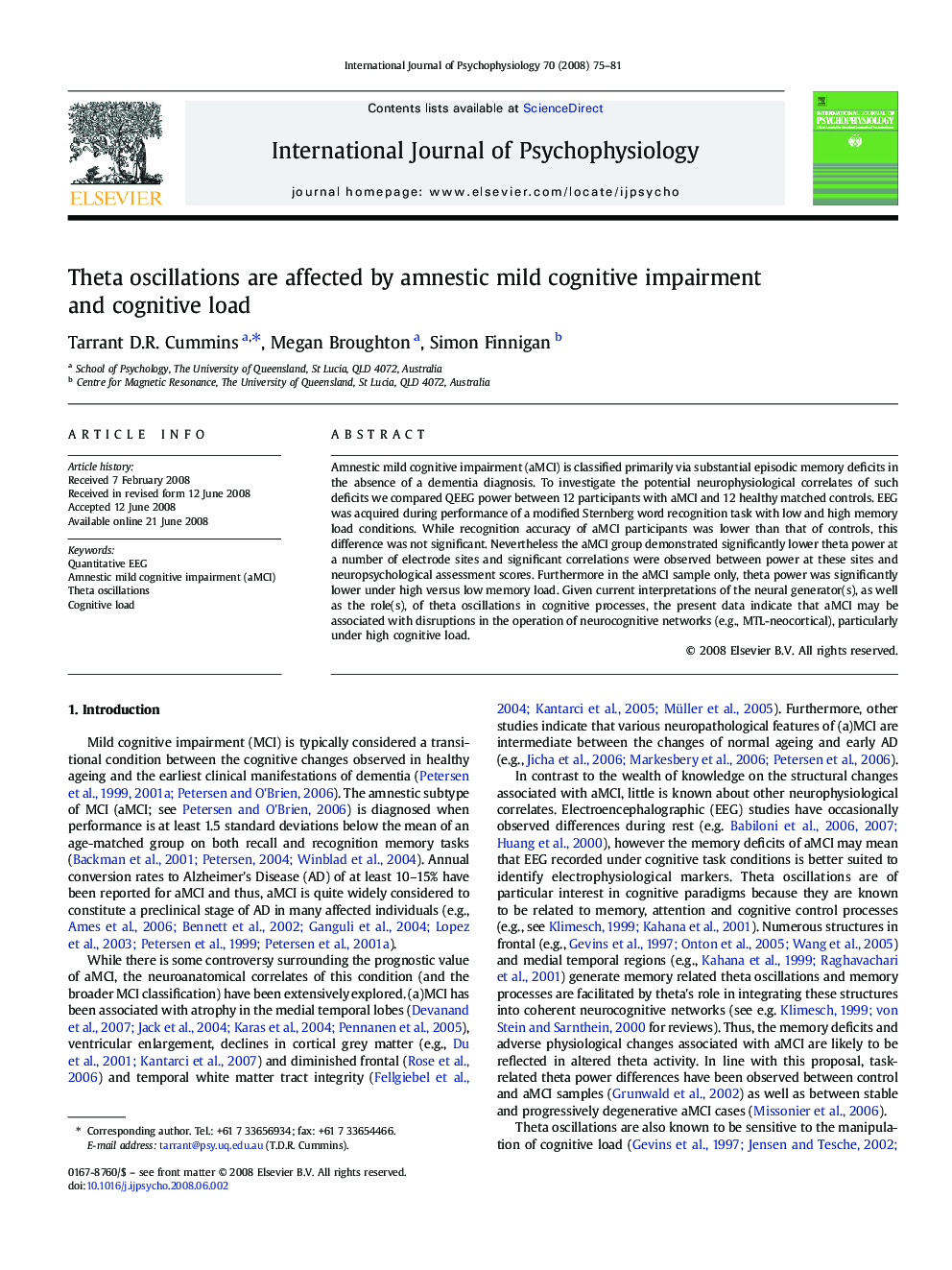| Article ID | Journal | Published Year | Pages | File Type |
|---|---|---|---|---|
| 931498 | International Journal of Psychophysiology | 2008 | 7 Pages |
Amnestic mild cognitive impairment (aMCI) is classified primarily via substantial episodic memory deficits in the absence of a dementia diagnosis. To investigate the potential neurophysiological correlates of such deficits we compared QEEG power between 12 participants with aMCI and 12 healthy matched controls. EEG was acquired during performance of a modified Sternberg word recognition task with low and high memory load conditions. While recognition accuracy of aMCI participants was lower than that of controls, this difference was not significant. Nevertheless the aMCI group demonstrated significantly lower theta power at a number of electrode sites and significant correlations were observed between power at these sites and neuropsychological assessment scores. Furthermore in the aMCI sample only, theta power was significantly lower under high versus low memory load. Given current interpretations of the neural generator(s), as well as the role(s), of theta oscillations in cognitive processes, the present data indicate that aMCI may be associated with disruptions in the operation of neurocognitive networks (e.g., MTL-neocortical), particularly under high cognitive load.
